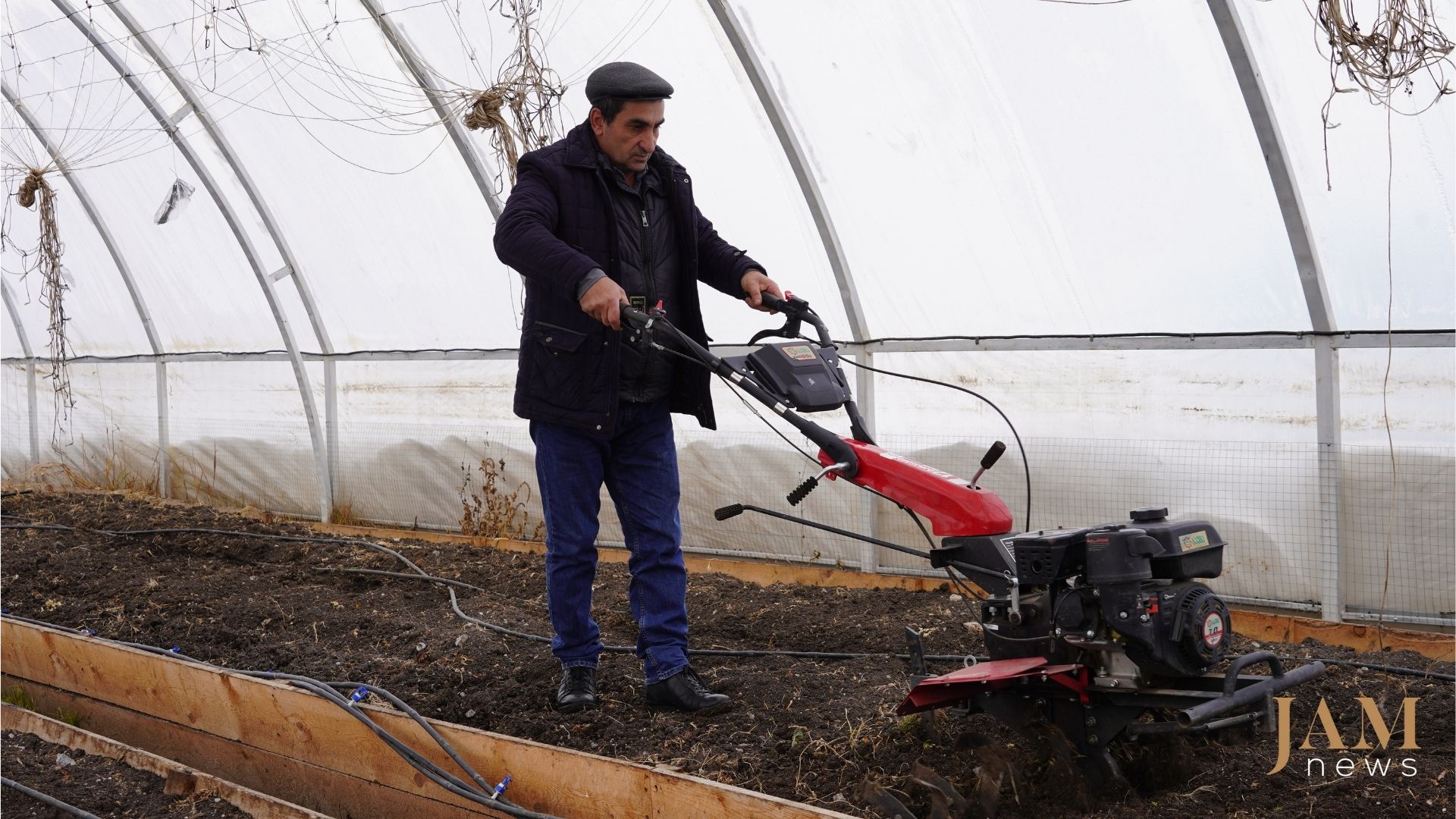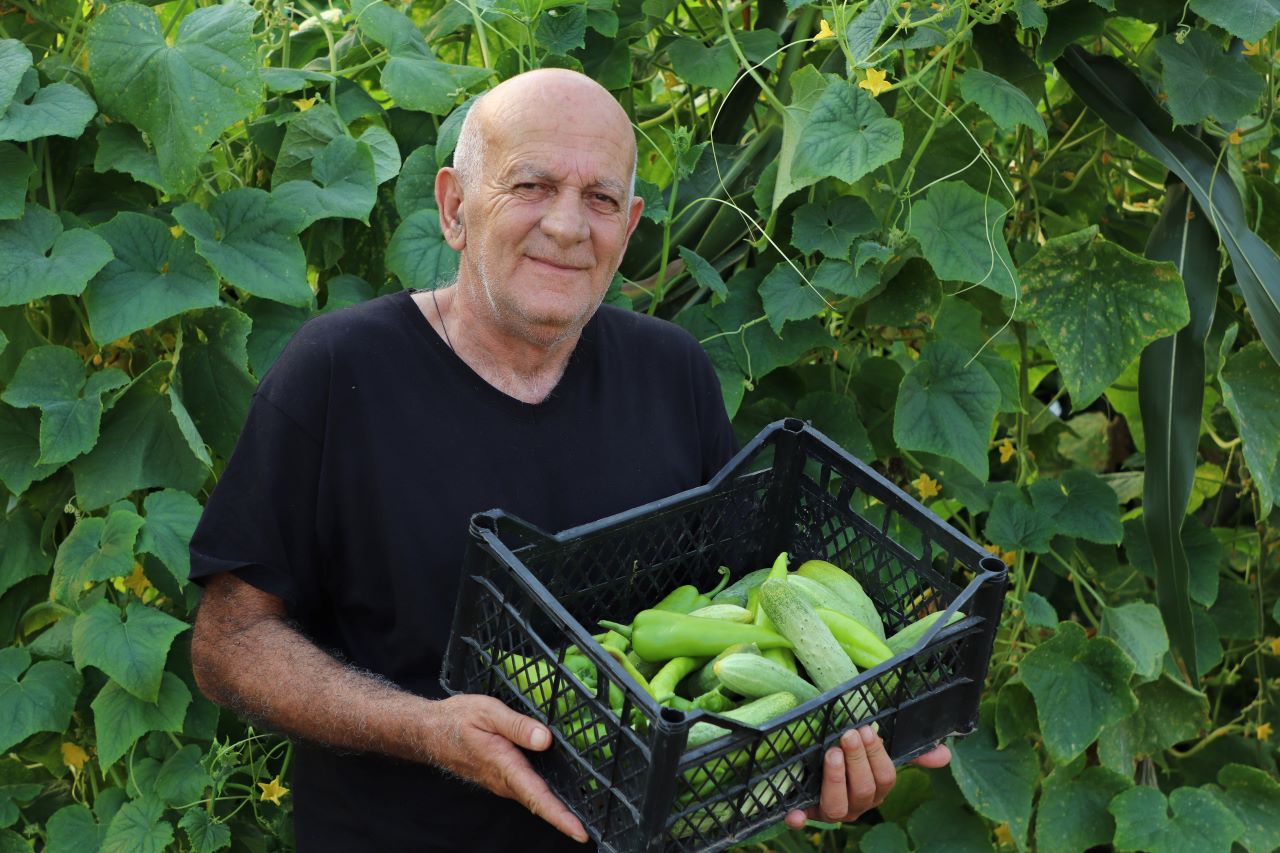How CENN supports rural development with the support of the EU and is changing the lives of Tsalka farmers
How CENN supports rural development
Davit Markoidze, a farmer from Tsalka, has raised 100,000 seedlings of broccoli, cauliflower, cucumber, tomato and lettuce in his greenhouse this year. His broccoli has even reached the southern part of the country, Adigeni. Thirty-four-year-old farmer Endo Stepanyan is waiting for a harvest of 600 tons of potatoes. This year Endo is also testing new European seed varieties so that villagers have access to quality seeds.
Here you will find out how these farmers, and others like them, have achieved their success
Potato cultivation starting with 500 square meters
“There were times when I thought that nothing would work out and it would be better to leave this business, but now I’m actually thinking about expansion,” farmer Endo Stepanyan says. He has an ambitious plan — he wants to replace imported semi-finished potato products with local varieties.
It is a difficult task, but Stepanyan says he is not afraid of such difficulty.
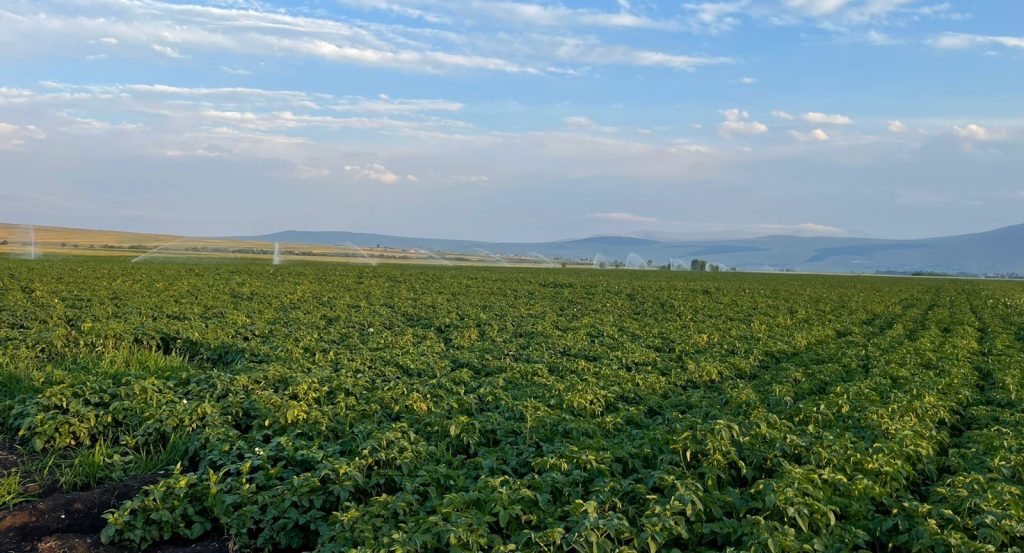
Thirty-four-year-old Endo Stepanyan had a long and difficult path to becoming a large-scale farmer.
Fifteen years ago, when he was nineteen, Endo moved from Tbilisi to the village of Aizawa in Tsalka. Endo loved to work. In a neighbouring village, Gumbo, he rented 500 square meters of land and planted 300 kilos of potatoes.
“Potatoes are a crop that requires a lot of work, but if you take good care of them, you will definitely see a harvest. I enjoy working, it’s very interesting to me,” he says.
So, Endo’s initial hopes panned out. This is how he began growing potatoes in Tsalka.
Slowly Endo began to expand the farm. Land plots were either bought or leased. Endo chose the production of seed potatoes as his main line of work. Foreign varieties were imported from Europe. He tried them out himself, observed how they adapted, then sold them on the Georgian market.
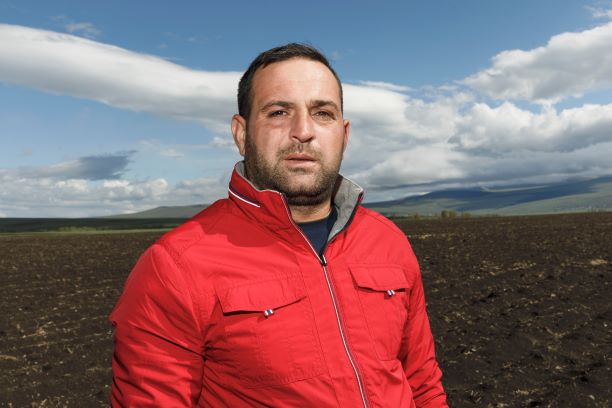
“This year I have five new varieties for demonstration, one German and four Dutch. Now I am watching how they will adapt to the climate here, what kind of harvest it might be, then I’ll work on distribution,” Endo explains.
In this way, he also allows other farmers to improve the quality of their seed and purchase new varieties at a relatively low price.
Year by year Endo’s farm has expanded, as has his customer base. Now the potato seed of a Tsalka farmer is being sold all over the country.
The farm now covers 27 hectares – 10 hectares of his property, and 17 hectares leased.
Endo grows more than just potatoes, in fact.
“Because the land requires crop rotation in order not to be exhausted, this year I will sow barley or wheat, then potatoes again, and so on. However, my main focus is on potatoes.”
This year, he has planted potatoes on 15 hectares out of 27, and expects to harvest about 600 tons.
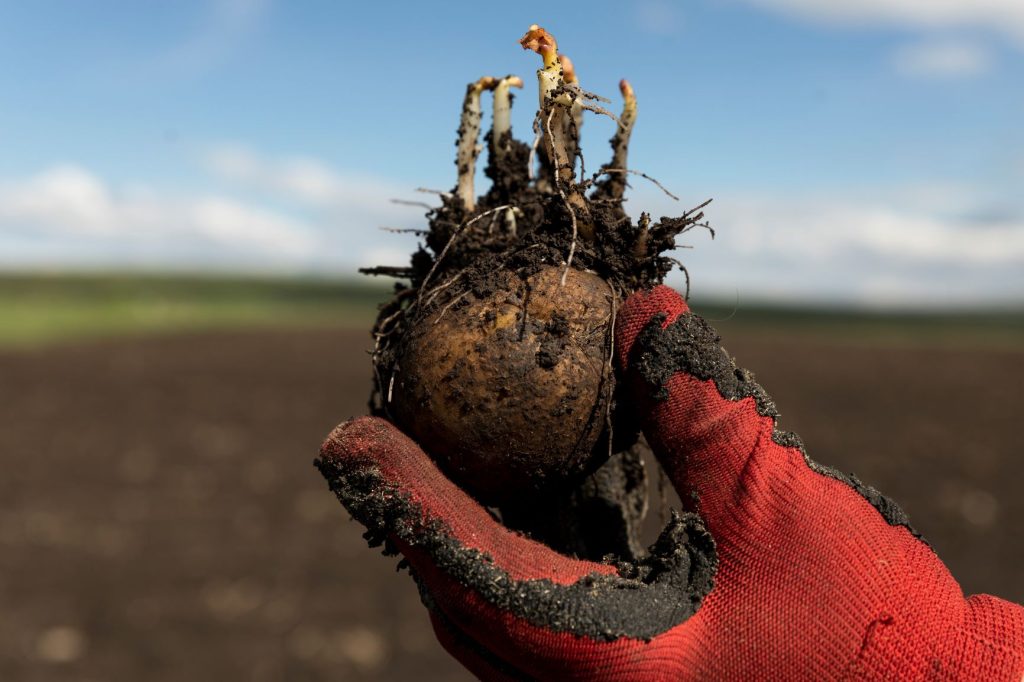
Potato farming requires a lot of work and carries many expenses. Over the course of fifteen years, Endo Stepanyan slowly purchased the equipment he needed to cultivate the land – a tractor, planter, cultivator, sprayer, miller, and a harvester. Thus, he was able to reduce production costs.
Yet one major problem remained – proper storage of the harvested crop. The old warehouse in the village did not offer the right conditions; it was impossible to store potatoes for a long time and Endo’s harvest was going bad.
“When you don’t have a place, it’s very difficult. Labour and costs are also higher – the harvested crop was far away in the warehouse, I needed more workers, and the potatoes were damaged during transportation”
The EU-supported “This is Tsalka” project helped the young farmer solve this problem. Endo built a warehouse with an area of 800 square meters located near his cropland.
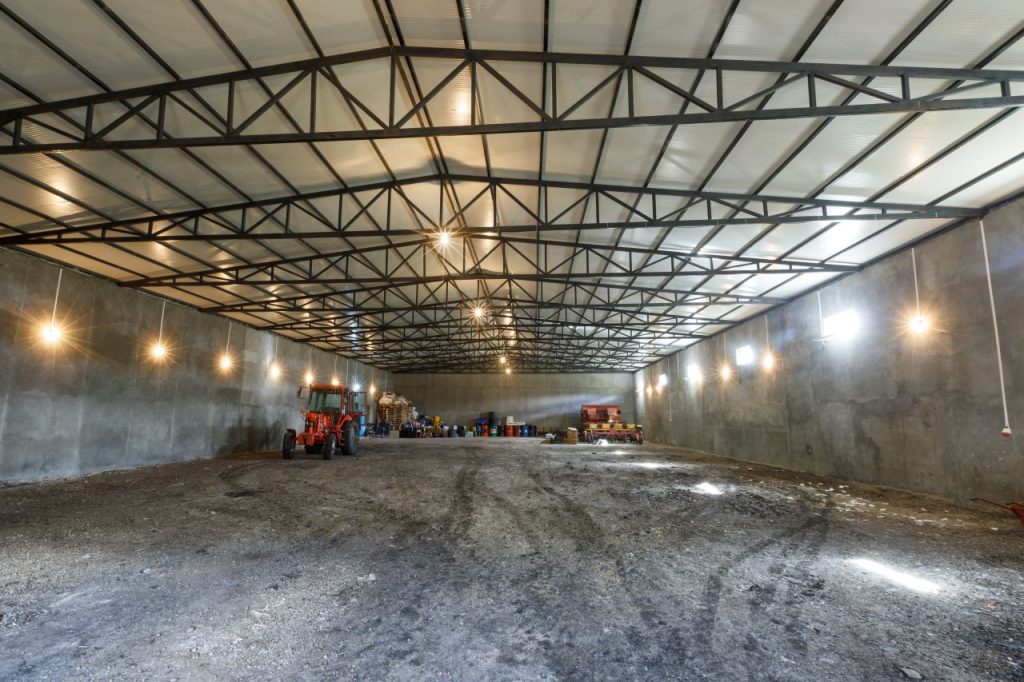
Endo says that without this help, it would have been difficult to build a warehouse.
The new warehouse has significantly reduced the cost of storage since unloading the crop does not require labour – the warehouse is designed so that trucks enter freely and the crop is unloaded directly from the vehicle.
“The warehouse is so high that the truck goes straight in and unloads it. You don’t need workers anymore, nor do you need a lot of moving”.
The location of the warehouse near the cropland has allowed for optimal sowing time and reduced costs. In the end, the new warehouse turned out to have a domino effect – reduced costs meant the prospect of longer storage, and that pushed the farmer to expand his farm.
“I wasn’t thinking about increasing the scale of the farm two years ago because I didn’t have enough to store or the harvest would rot, but now I’m thinking about expansion. The warehouse meets European standards, so you can store crops all year round and they don’t rot.”
The “EMBRACE Tsalka” project was launched in 2018 in Tsalka, a multi-ethnic municipality of Georgia, with the financial support of the EU-ENPARD program. This project is undertaken by CENN with partner organizations. The purpose of the program is to support rural development, create new economic opportunities, and promote population integration.
For the construction of the warehouse, Endo received 204,423 GEL in 2021 from the European Union, of which 109,319 GEL was its contribution
His fellow villagers can also store crops in his warehouse. Endo says that they pay about 20 GEL for housing one ton of crops.
Not only that, but with the support of the European Union, Endo also purchased a sorting machine for the warehouse. This device simplifies the process of selecting potatoes. Other villagers also have use of the sorting machine.
The villagers are also involved in Endo’s farming. A young farmer says that as soon as spring comes, six to seven people are employed on his farm full-time.
In fall when the harvest starts, Endo employs around fifty locals for about a month, mostly women who pick the potatoes; and for the next stage during sorting, another eight people are employed at the warehouse.
“This is a good opportunity for locals to have income for some time at least. When they see the success of others, it stimulates them and the village is revitalized.”
The young farmer now has an ambitious plan – to replace the imported semi-finished potato products in Georgian grocery stores with his own.
The road of broccoli grown in Tsalka to Adigeni
“This year, I grew 100,000 seedlings and sold 95%”, Davit (Dato) Markoidze, who lives in the village of Gantiadi, tells his story of broccoli grown in Tsalka with pride.
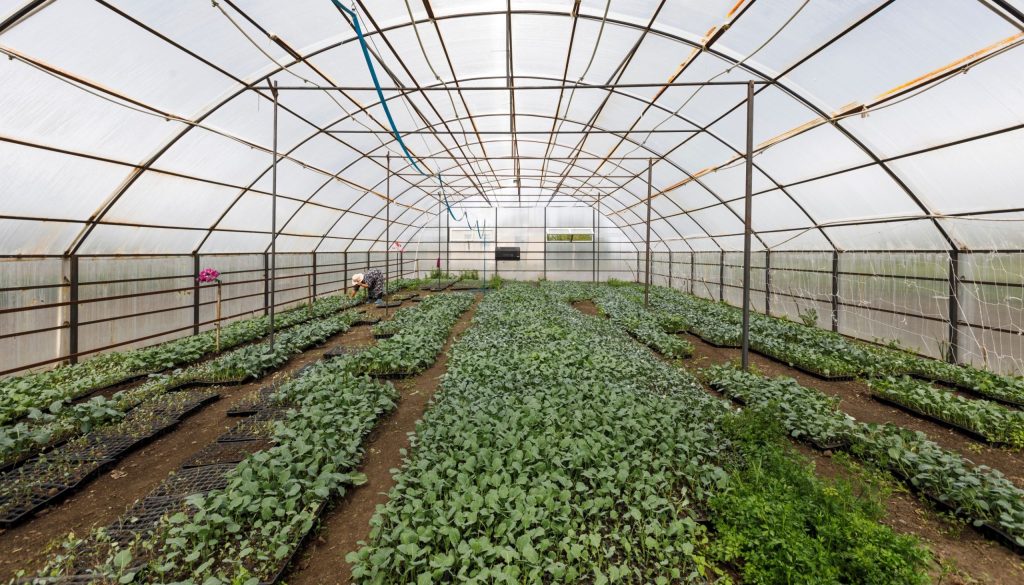
Like Endo, Dato is a farmer living in Kvemo Kartli. Dato’s family has been engaged in agricultural activities for many years and grows various vegetables.
The cucumbers, tomatoes, broccoli, cauliflower and colourful lettuce grown by the Markoidze family are sold in almost all Tbilisi markets. The Markoidzes say that they have had loyal customers for a long time.

However, like Endo, Dato has trod a difficult path, one that required a lot of work and energy, and often brought losses.
Tsalka has a harsh climate. It is difficult to grow vegetable seedlings on the ground, so Dato’s family used to buy seedlings in Marneuli or in Tbilisi.
“Seedlings need a lot of care. If they weren’t packed properly, they often did not survive transport and at least 30% of the seedlings rotted,” Dato Markoidze says.
Since Dato and his fellow villagers needed seedlings, Dato started growing them at home eight years ago. Part of this crop was planted by the family for its own use, and part was sold.
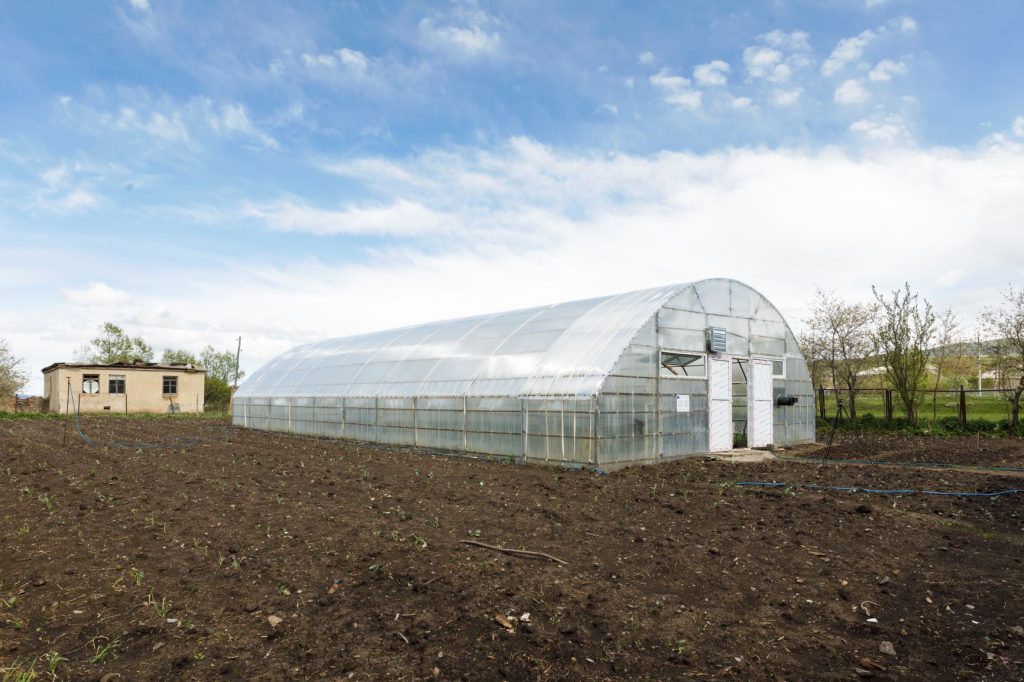
The Markoidze family seeds soon earned the trust of the locals. Dato could no longer satisfy the demand, so he decided to start a nursery.
Dato is a beneficiary of the “This is Tsalka” project supported by the European Union. He was assisted by this program two years ago, in 2020.
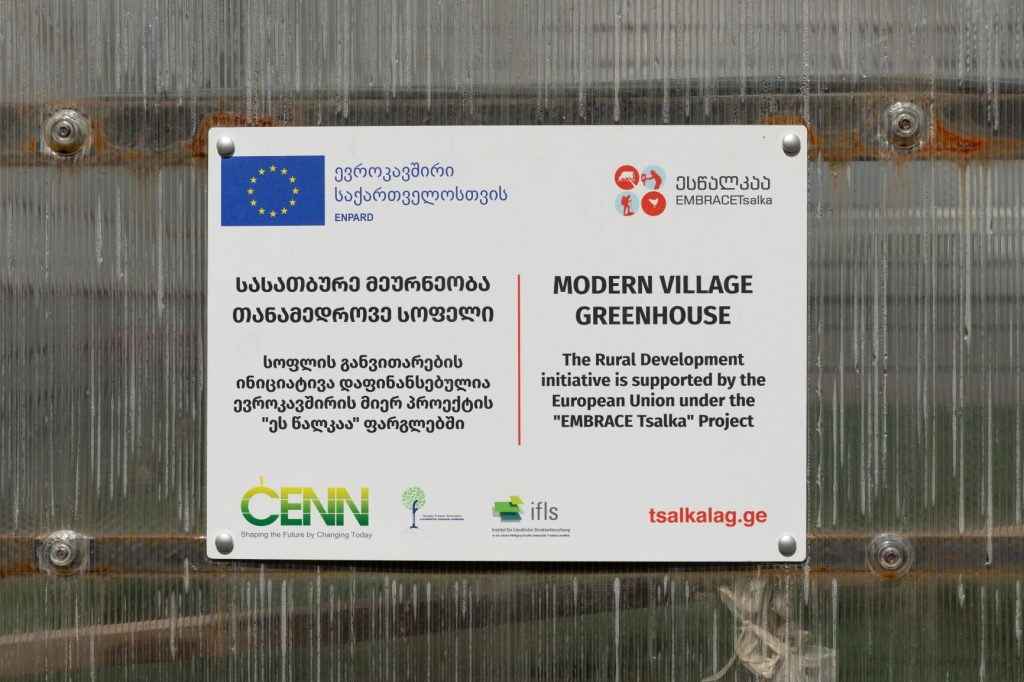
With the support of the ENPARD program of the European Union, the Markoidzes constructed a greenhouse equipped with modern technology on a 200 square meter area of their property.
Dato received 16,511 GEL from the European Union, of which his share was 5,504 GEL.
Dato’s main goal is to produce a quality product, to supply the customer with quality seed at an early stage, and to fully satisfy the requirements for the product.
“When the seed is available locally, it is more efficient and gratifying. This year we had about 100,000 seedlings and 95% of them were pre-ordered.”
Four members of the family with many years of experience are involved in the Markoidze family business. Periodically, three to five local people also work in Dato’s greenhouse.
“While we used to plant 1,000 to 1,500 seeds in a 500 to 1,000m section, now we have increased the number of seeds to 25,000. We also sell seeds separately, and this is separate income.”
Dato adds that production on the farm has increased about 200% thanks to the greenhouse.
Why the “Es Tsalkaa” project is important for Tsalka
Tsalka is a multi-ethnic municipality located in the Kvemo Kartli region. In this area rich in natural resources, or those corners of Georgia where ethnic minorities live, the feeling of separation from the centre has been strong for years.
Villages are being abandoned, and young people are leaving because they see no potential and no future.
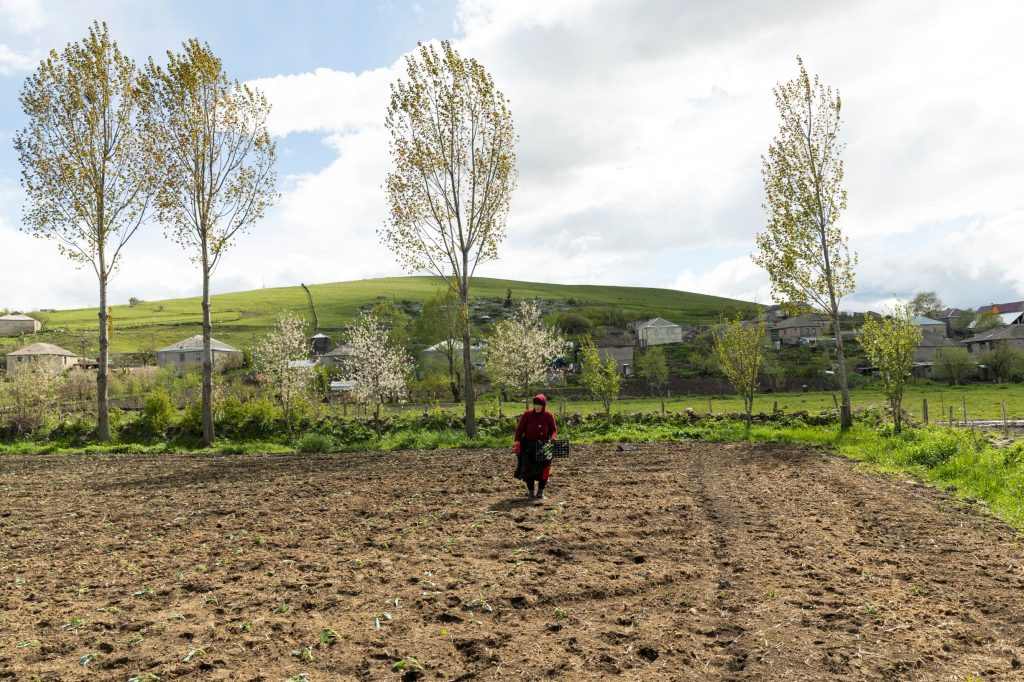
However, Tsalka has excellent conditions for the development of agriculture and agro-tourism. And not only this – the area has great opportunities for the development of alpine tourism.
For this reason, Tsalka municipality was selected as a beneficiary of the EU-ENPARD program.
This EU program has made it easier for local farmers to access financial resources, new technology and knowledge. It laid the foundation for the European practice of community-based, bottom-up management and participatory planning. The stories of individual beneficiaries have proved to be an example for others.
Endo and Dato’s stories demonstrate how CENN aids rural development. Now, Endo and Dato share the knowledge and experience they have gained with the help of this program and hope their stories will motivate others to do the same.
How CENN supports rural development
This article was prepared under the “Local LEADERs Embrace Sustainable Development in Multi-Ethnic Tsalka Municipality (EMBRACE Tsalka)” project, which aims to reduce rural poverty and improve living conditions in Tsalka municipality, addressing economic, social, and environmental concerns by improving agricultural competition, promoting sustainable management of natural resources, and building climate-resilient rural economies and communities. “EMBRACE Tsalka” is undertaken by the European Neighbourhood Programme for Agriculture and Rural Development (ENPARD) through EU’s partner organization CENN, in partnership with the Georgian Farmers’ Association (GFA) and German partner organization Institute for Rural Development Research (IfLS).










